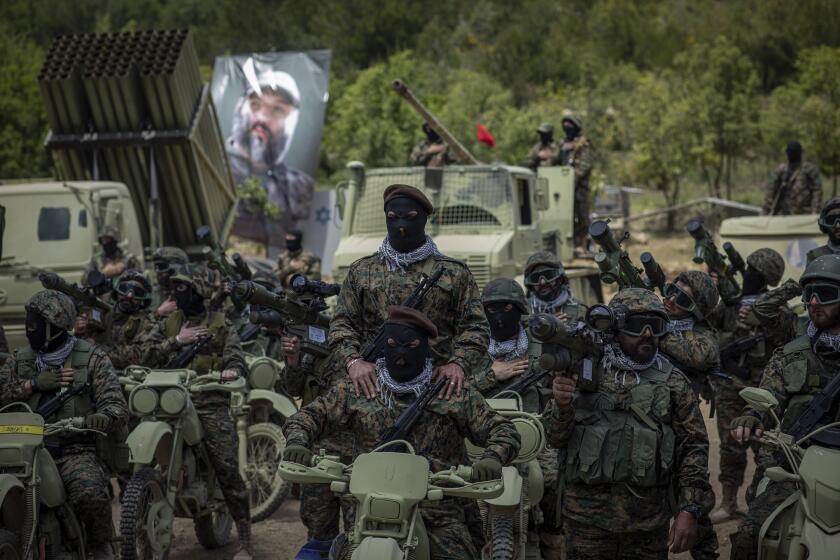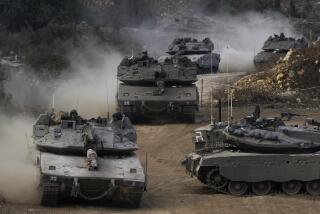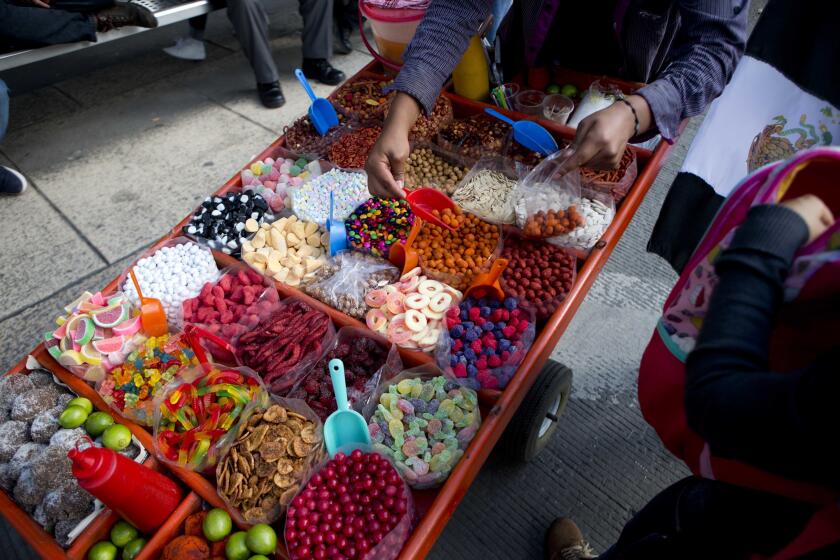Lebanon captures gunman following U.S. Embassy attack

BEIRUT — A gunman opened fire on the U.S. Embassy in the Lebanese capital on Wednesday, injuring a security guard before being wounded in return fire and apprehended, the Lebanese army and embassy officials said.
The gunman’s motive remains unclear, but the attack, which took place at 8:34 a.m. local time according to an embassy statement, comes amid widespread popular anger here over U.S. support for Israel’s ongoing campaign in Gaza.
Tensions have also been rising along Lebanon’s southern border with Israel, where Israeli troops and forces with the Lebanese Shiite group Hezbollah have traded fire for months in an escalating tit-for-tat fight.
The Lebanese army said the gunman, a Syrian national living in the Lebanese border town of Majdal Anjar, was detained and taken to a hospital for investigation.
The army said it also arrested three family members of the gunman, along with a Syrian national and a Lebanese citizen.
The embassy said in its statement that “small arms fire was reported in the vicinity” of the embassy’s entrance.
“Thanks to the quick reaction of host country security forces and our embassy security team, our facility and our team are safe,” the statement said. An embassy spokesperson said one embassy guard was injured in the attack.
“Investigations are underway and we are in close contact with host country law enforcement,” the statement said.
It added that appointments for Wednesday were canceled, but the embassy would resume operations the next day.
Lebanon-based Hezbollah is holding back from all-out war with Israel for now — but chances of a dangerous miscalculation by either side are high.
Videos posted on social media depicted an assault-rifle-toting masked gunman — dressed in jeans, combat vest and helmet — emerging from a parking lot opposite the U.S. Embassy’s entrance. The Los Angeles Times could not confirm the veracity of the videos, but the locations depicted in them correspond to the embassy.
Stepping toward the entrance across the street, the man takes successive shots. Another clip shows him opening fire again before an army jeep rushes toward him.
The gunman then runs into a side street; in the ensuing shootout — which local media said lasted more than half an hour — he continues evading return fire.
Pictures purporting to show the gunman wounded — released on local media — showed he sustained injuries to his leg and his stomach. His vest bears the logo of Islamic State, the ultra-violent extremist group that was largely defeated in 2019 after a years-long, international campaign led by the U.S.
Some local media channels quoted the gunman as having said the attack was done in the name of Gaza. There was no confirmation from official sources.
Israel-Hamas war: In Qatar’s capital, a compound housing Palestinian medical evacuees from Gaza is a living catalog of what war does to the human body.
Lebanon’s usually fractious political class came together in condemnation of the attack, while observers expressed hope the shooting was not a harbinger of a wider conflagration between Hezbollah and Israel.
Since the Israel-Hamas war began, rage against the U.S. has spiked across the region, including in Lebanon, which saw protests against the U.S. Embassy in October as well as demonstrations before diplomatic missions of countries viewed as supporting Israel. The country houses some 270,000 Palestinian refugees and an estimated 1 million refugees from the civil war in neighboring Syria.
The U.S. Embassy lies on the side of a hill in a Christian-dominated neighborhood outside the capital. Its current site opened after 1983, when a deadly bombing struck the embassy building on Beirut’s waterfront and killed 63 people. Washington blamed Hezbollah for the attack, and for a subsequent suicide attack on the current site in 1984, which killed 23 people.
More to Read
Sign up for Essential California
The most important California stories and recommendations in your inbox every morning.
You may occasionally receive promotional content from the Los Angeles Times.













